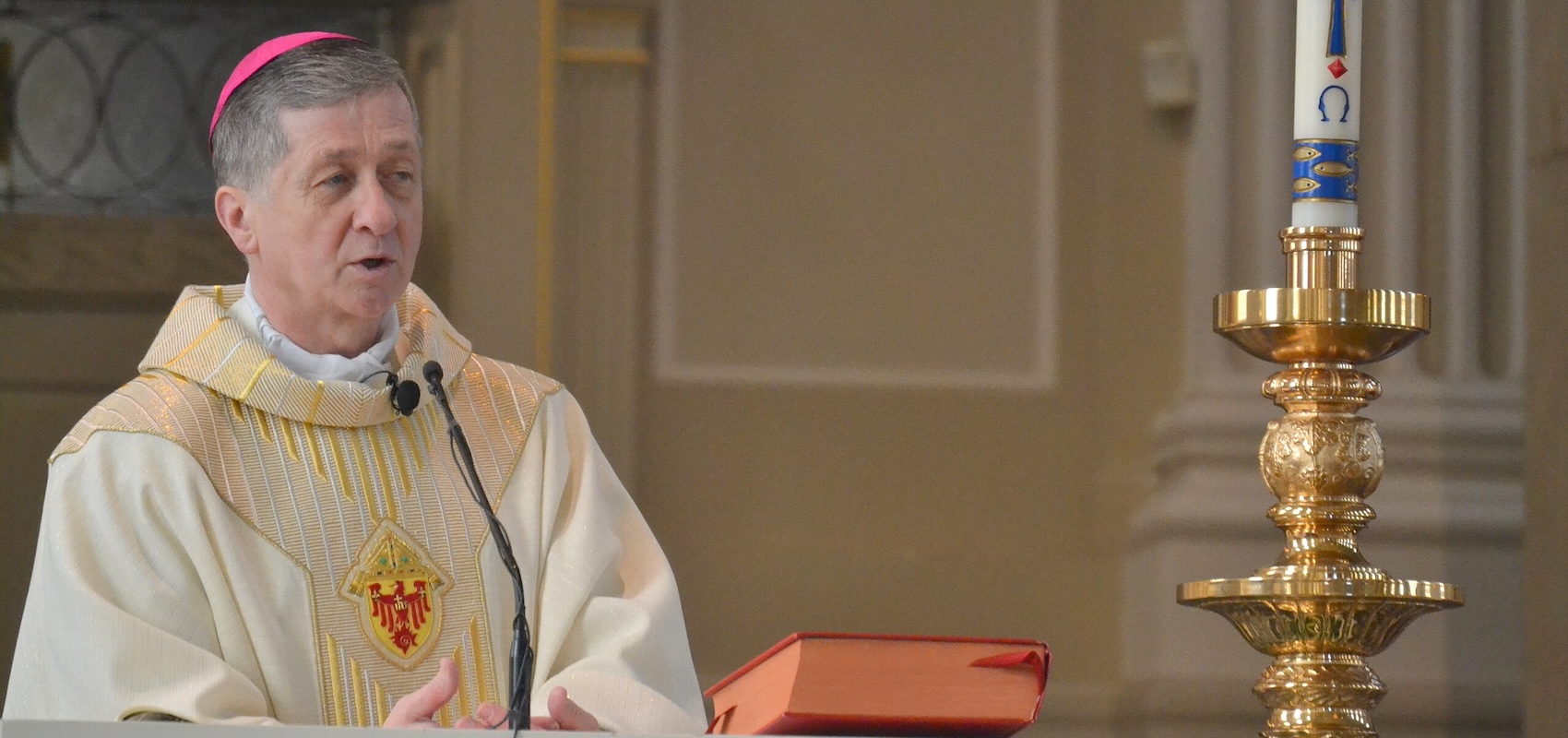
Bishop Thomas J. Paprocki recently wrote in these pages that the Archdiocese of Chicago’s plan to grant a lifetime achievement award to Sen. Dick Durbin is “gravely mistaken” because the senator “has dedicated himself to creating, preserving, and expanding a legal right to abortion—that is, a legal right to kill an innocent human being in the womb.”
Chicago archbishop Blase Cardinal Cupich defended the award, saying it is being given to “recognize all the critically important contributions Senator Durbin has taken to advance Catholic social teaching in the areas of immigration, the care of the poor, Laudato Si’, and world peace.”
What has been missing from the discussion about the appropriateness of this award is the perspective of a Catholic who has served in public office. I spent sixteen years in the U.S. House of Representatives as a pro-life Democrat. In this light, I want to offer my unique understanding of how the bestowal of this award could undermine the Church’s witness in the public square.
The Church has much less influence on Catholics in public life than it used to. This is evidenced in the Democratic party on the issue of abortion. Post-Roe, the party has always been pro-choice, but the existence of Catholic Democrats committed to the teachings of the Church meant that a pro-life wing remained. Though the number of self-identifying Catholics did not diminish, this faction gradually dwindled in Congress to near non-existence.
There are two reasons why a Catholic politician would abide by the Church’s teachings. First, she may believe that for the sake of her soul she must follow, no matter the personal cost. Second, she may understand that her Catholic constituents will punish her if she does not.
The diminished influence of the Church demonstrates that politicians’ concerns about the eternal and the temporal consequences of their actions has weakened considerably. This stems from fewer Catholics today understanding and respecting the Church’s teachings and how they are to be put into action in the public square.
This is most obvious with regard to abortion. Part of the blame lies with Catholic politicians who have been sowing confusion on this issue. In 1984, then-New York Gov. Mario Cuomo’s slick defense of his refusal to support abortion restrictions included the claim that doing so would make “my religious value your morality” and “my rule of conduct your limitation.”
Recently, Sen. Durbin conveyed a similar attitude, saying, “My personal feelings on the subject [of abortion] are one thing. . . . When it comes to public policy, the opportunity for that decision should always be there.”
Both of these men began their political careers favoring pro-life policies. As Democrats, however, being pro-life hurt their political ambitions if they wanted to rise in the party. They needed a way out.
Neither wanted to directly claim the Church is wrong on abortion. Instead, they crafted their rhetoric to profess a false claim about the doctrine of the Church—that understanding abortion to be “intrinsically evil” is only a faith-based belief. This suggests it is akin to the Virgin Birth or the Real Presence, neither of which the government would force Americans to believe.
In claiming this, they were hoping to convince others—and possibly themselves—that there was no choice to be made between putting truth into practice and pursuing political advantage. While neither man reached the political heights they sought, both had very successful careers in the world’s eyes.
Meanwhile, the assertions they made about abortion have had and continue to have negative consequences for the Church and the country. Countless Catholics have been misled about what the Church teaches. Other Catholic politicians have used this template over and over again as they duck their responsibility to defend the defenseless. Millions of abortions have continued.
While it is bad enough when politicians act as politicians in the worst sense by making these claims, when Church leaders give their tacit approval through silence—or worse yet, honor a man who made them—it is destructive to the Church and undermines its witness in the world.
Instead, Catholics, especially those in public life, need to hear the instructions that Pope Leo gave last month to a delegation of local elected officials from France. He reminded the group: “Christianity cannot be reduced to mere private devotion,” because “there is not the politician on one side and the Christian on the other.”
Catholic public officials are “called to . . . deepen [their] understanding of the doctrine . . . and to put it into practice in the exercise of [their] duties and in the drafting of laws.” This is appropriate because “its foundations are fundamentally in accord with human nature, the natural law that everyone can recognize, even non-Christians, even non-believers.”
Finally, the pope acknowledged that he is aware of partisan orders “to which politicians are subjected,” but emphasized that they need “courage to sometimes say ‘No, I cannot!’”
This is what Catholics need to hear, and heed, if we want to restore our witness.
Image by Goat_Girl, licensed via Creative Commons. Image cropped.
The Church’s Answer to the World (ft. Carter Griffin)
In the latest installment of the ongoing interview series with contributing editor Mark Bauerlein, Fr. Carter Griffin…
The Cambrian Implosion
A historical moment ago, it was too obvious for words, but: Life is a blessing. So to…
Zombie Bioethics
A recent article in MIT Technology Review carries the strange title, “Ethically sourced ‘spare’ human bodies could…
